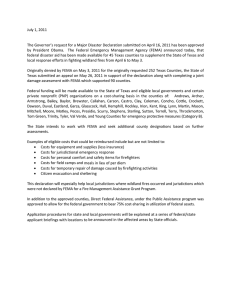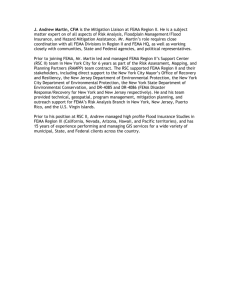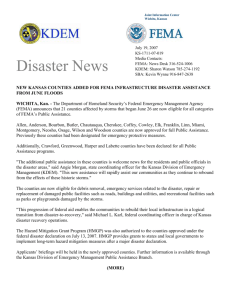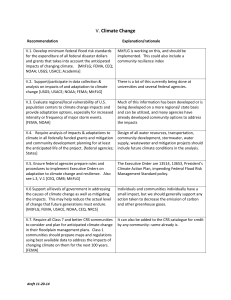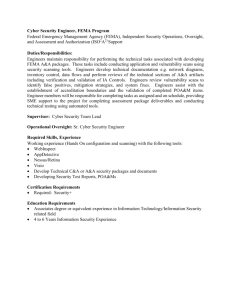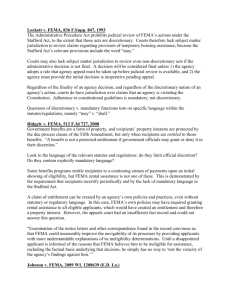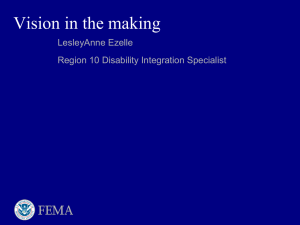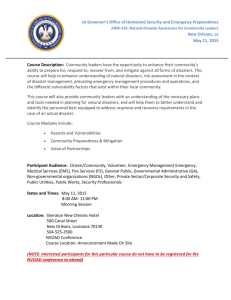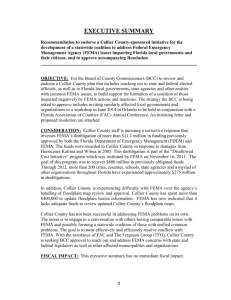Bryan Desloge President Leon Grover Robinson President
advertisement
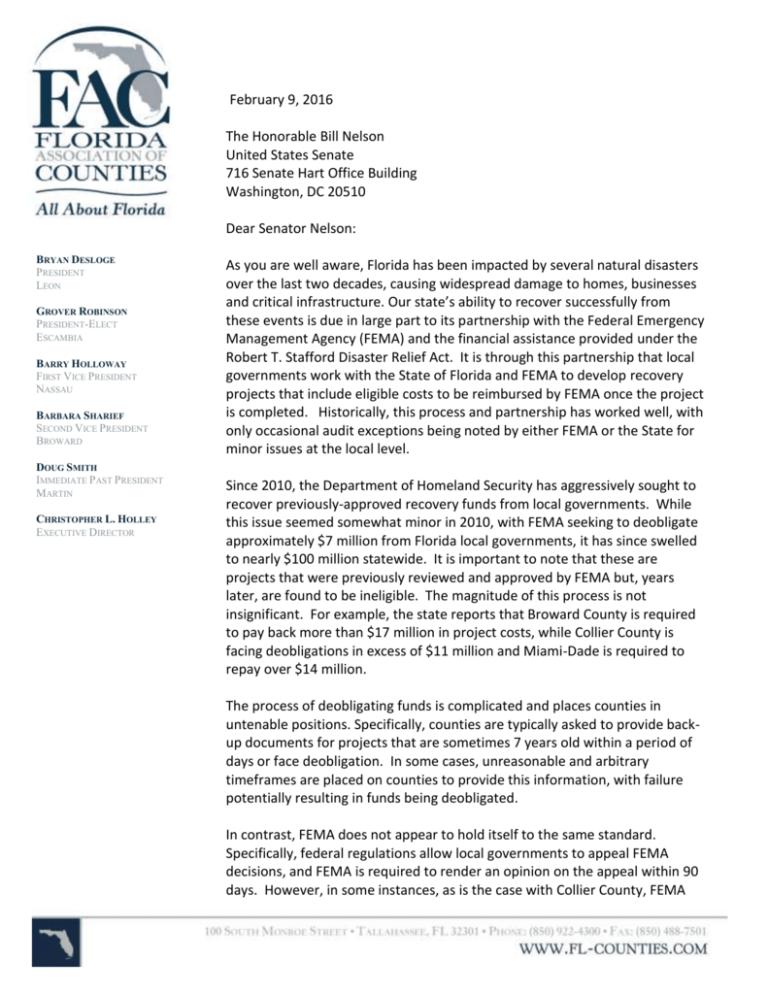
February 9, 2016 The Honorable Bill Nelson United States Senate 716 Senate Hart Office Building Washington, DC 20510 Dear Senator Nelson: BRYAN DESLOGE PRESIDENT LEON GROVER ROBINSON PRESIDENT-ELECT ESCAMBIA BARRY HOLLOWAY FIRST VICE PRESIDENT NASSAU BARBARA SHARIEF SECOND VICE PRESIDENT BROWARD DOUG SMITH IMMEDIATE PAST PRESIDENT MARTIN CHRISTOPHER L. HOLLEY EXECUTIVE DIRECTOR As you are well aware, Florida has been impacted by several natural disasters over the last two decades, causing widespread damage to homes, businesses and critical infrastructure. Our state’s ability to recover successfully from these events is due in large part to its partnership with the Federal Emergency Management Agency (FEMA) and the financial assistance provided under the Robert T. Stafford Disaster Relief Act. It is through this partnership that local governments work with the State of Florida and FEMA to develop recovery projects that include eligible costs to be reimbursed by FEMA once the project is completed. Historically, this process and partnership has worked well, with only occasional audit exceptions being noted by either FEMA or the State for minor issues at the local level. Since 2010, the Department of Homeland Security has aggressively sought to recover previously-approved recovery funds from local governments. While this issue seemed somewhat minor in 2010, with FEMA seeking to deobligate approximately $7 million from Florida local governments, it has since swelled to nearly $100 million statewide. It is important to note that these are projects that were previously reviewed and approved by FEMA but, years later, are found to be ineligible. The magnitude of this process is not insignificant. For example, the state reports that Broward County is required to pay back more than $17 million in project costs, while Collier County is facing deobligations in excess of $11 million and Miami-Dade is required to repay over $14 million. The process of deobligating funds is complicated and places counties in untenable positions. Specifically, counties are typically asked to provide backup documents for projects that are sometimes 7 years old within a period of days or face deobligation. In some cases, unreasonable and arbitrary timeframes are placed on counties to provide this information, with failure potentially resulting in funds being deobligated. In contrast, FEMA does not appear to hold itself to the same standard. Specifically, federal regulations allow local governments to appeal FEMA decisions, and FEMA is required to render an opinion on the appeal within 90 days. However, in some instances, as is the case with Collier County, FEMA The Honorable Bill Nelson Page 2 has not taken action on an appeal it has had for nearly 18 months. This double standard and its resulting delays cause prolonged fiscal uncertainty for counties awaiting a decision concerning whether they will have return recovery funds to the federal government. Recognizing our state’s vulnerability to storms and the importance of federal assistance in local recovery, Florida requires a recovery process whose policies and regulations are clear and unambiguous on the front-end and not punitive on the back. In consideration of these issues, the Florida Association of Counties (FAC) respectfully asks for your assistance in ensuring FEMA’s deobligation process includes reasonable timeframes for counties to respond to information requests, and that FEMA make timely decisions on appeals filed by counties facing the potential of federal funds. Sincerely, Grover Robinson Escambia County Board of County Commissioners Florida Association of Counties, President Cc: Commissioner Grover Robinson, Escambia County Commissioner Barry Holloway, Nassau County Commissioner Barbara Sharief, Broward County Commissioner Doug Smith, Martin County Chris Holley, Florida Association of Counties, Executive Director
